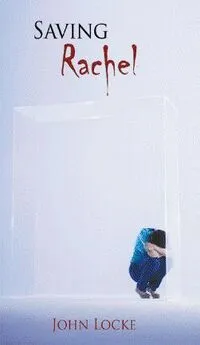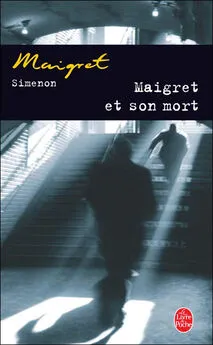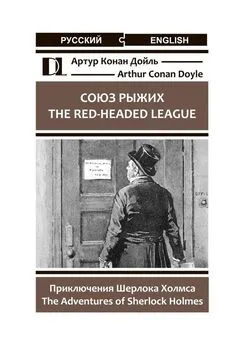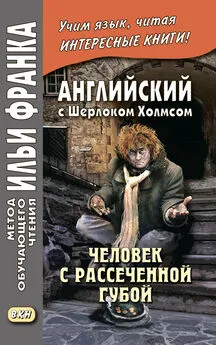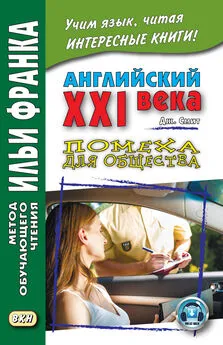John Lescroart - Son of Holmes
- Название:Son of Holmes
- Автор:
- Жанр:
- Издательство:New American Library
- Год:2003
- ISBN:9780451208750
- Рейтинг:
- Избранное:Добавить в избранное
-
Отзывы:
-
Ваша оценка:
John Lescroart - Son of Holmes краткое содержание
John Lescroart offers an engrossing historical mystery that takes us to a small French town in the dark days of World War I-where the rumor is that Auguste Lupa is the son of the greatest detective of all time. And his mysterious legacy may come to light as he attempts to solve the baffling murder of an intelligence agent...
Son of Holmes - читать онлайн бесплатно полную версию (весь текст целиком)
Интервал:
Закладка:
I told him about Pulis and the telegram while Charles was pouring my coffee. He listened with his eyes closed, leaning back far in his chair. When I had finished, he frowned.
“It would make things much easier if we could ever eliminate someone completely. You say he’s going to St. Etienne tomorrow?”
As I nodded, there was a loud, ringing alarm. Lupa reached to a button on his desk and pressed it, shutting off the noise. He calmly opened his desk and took out his pistol, checking to see that it was loaded. “Stay here,” he said to me and disappeared into the tunnel. I sat uncomfortably for several minutes before I heard returning footsteps and voices. The curtain came aside and Lupa reentered with Watkins.
“. . . So it seems possible, though rather a long shot,” said the Englishman as he came into the room. “Ah, hello. I didn’t realize you were here.”
“He’s only just arrived,” said Lupa. “Would you have some coffee? Tea?”
“Tea, please.”
“Fine.” He ordered it, and we waited.
“Excuse me,” I said, “but what seems possible?”
Lupa closed his paper. “Joseph here has just returned from St. Etienne, where he’s been trying to find some information we can use. He’s not working at all on the murders, as you are, but only on the arsenal. After the attempt yesterday, I thought things would start to move quickly, but I was wrong. Nothing happened, at least that we know of, at St. Etienne. Joseph believes, however, that he was followed for quite some time, even back here to Valence, possibly by the man who shot at us. He was about to describe him.”
Watkins slouched in his chair, looking rather ragged, as though he hadn’t slept. The tea arrived, and he sipped at it. Suddenly, when he was about to speak, his eyes became illuminated, and he lost his vacant look. It was amazing, almost as though he were two different people.
“Actually, I never did get a good look at his face. He had brownish hair, I think, dressed plainly, about six foot.” He smiled. “Brilliant description, what? Could as well be me I’m talking about.” Then he shifted back into himself and sat as though he’d been deflated, sipping at his tea. “God, I’m tired.”
“Why don’t you get yourself some sleep? Are you going back to St. Etienne right away?”
“I thought I’d go down a bit later, say after dark.”
Lupa nodded. “Satisfactory. I’m getting ready to move, to create something if necessary. I’ve got a good guess who we want. By the way, Pulis is coming down tomorrow morning to deliver. Watch him.” He turned to me. “How does he go down?”
“Produce cart, I imagine.”
“Good, then he’ll be easy to pick up. Catch him outside of town and follow him everywhere. If he meets anyone . . . well, do what you can. It would be nice if we could use the police.”
Watkins stood and moved to the door. “Got it.”
“This trip back and forth must get tedious. When you go down, stay until you have something. I have a feeling things are coming to a head.”
“Yes, sir,” he said and started out.
“Oh, Watkins!”
He stopped and looked back in.
“Don’t you think it might be better if you exited the same way you entered? It’s just possible that someone might notice you coming out of a building you’d never entered. Also, in the future, why not try coming in by way of the restaurant.”
“Right, right, right . . .” he muttered, crossing the room again. “The plants need watering. I’ve turned on the lights.” He left.
“No olives?” I asked.
“Certainly an oversight. Is there anything else?”
“I was wondering where Anna fits in. In fact, I’ve wondered about where all of us fit in. I get the distinct impression that there are things you’d rather I knew nothing about, and I’d like to know why.”
He sighed. “You’re right. There is much you don’t need to know. Ideally, you wouldn’t know Watkins, but there’s no harm in that. For the other things, wait a few more days. You might treat people differently if you knew their alignment with us. For now, you know enough to do your job.”
“Well, then, Anna at least . . .”
“Yes?”
“I’d like to know if Tania’s in danger with her being there, or if that was arranged by you.”
“Oh, no. Certainly not. I’m concerned, in fact, about any danger Anna may be in.”
“Not that again.”
“No,” he said. “No, not that again. We are simply in different camps on that question, and I’m afraid it won’t be resolved until I’ve seen Madame Chessal’s family, perhaps until the whole matter is closed. But Anna . . . I don’t know what to do about her.”
“Is she with us?”
“Not in the sense you mean. I’ve gotten myself entangled with her. She knows generally what my functions are, and sometimes she’s a great help, but she works for no government. I think when she leaves Madame Chessal’s care, I’m going to send her away. We’ve talked of marriage.”
“Congratulations.”
“Posh! A man shouldn’t be congratulated when he finds himself trapped. I feel I owe it to her, in a way. She’s done a lot for me.”
“But that’s terrible!” I said. “Don’t you love her at all?”
“Oh, love. Come, Jules, let’s not be sentimental. Surely, I care for her, but I realize that these things pass. I’m too much my own man to tolerate a woman around for very long. Still”—he sighed—“she is a good woman. I suppose there’s no help for it. I will send her away for a while.” He sat back and closed his eyes. The alarm once more sounded.
“That would be Watkins again. I should show him the switch. Well?” he said after a pause. “Anything else?”
“Yes, there is. Talking of Anna just reminded me. I’m not working with the government anymore. I’ve resigned.”
He opened his eyes a fraction. “Hmmm . . .”
“I expect there’ll be some trouble.”
“Undoubtedly. Why?”
“Transfer.”
“The fools! Don’t they believe there’s trouble here? Their own agents are dying consistently. So you’ve quit. Well, good. I’ll see if I’ll be able to assuage some of their more retaliatory instincts. Don’t worry.”
“I wasn’t,” I said, getting up.
“Fine. Wednesday night?”
“Oh, yes, all set with Henri and Tania. Georges said anywhere would be all right with him, and I’m going to see Paul now, so I’ll let you know. Oh, one more thing: the police want to see me. They’ve possibly seen me come here. How well do I know you?”
“Slightly.”
“Good, that’ll be easy, then. I’ll see them this afternoon after I get back.” So saying, I turned and left, hearing him calling for Charles to bring more beer.
I’d left the car parked at the telegraph office, so I walked back to it in the still brisk morning, trying again to piece together all I’d seen and heard, and once again coming up with a blank.
Since I’d never been to Paul’s house, I had a little trouble getting to it and was totally unprepared for what greeted me. It was set back on a small trail, nearly a kilometer from any real road, and looked like something from a fairy tale. It was tiny and seemed to be perfectly square, no more than ten meters on a side, though it did have two stories. I’d needed to ask directions before I arrived from some children who were playing nearby. All of them knew the place and seemed surprised that I didn’t. The roof was sharp-sloping, of the kind you see more often in Switzerland, though it was shingled with the familiar red tile. The house itself was white.
I parked to one side of the trail, walked to the small door, and knocked.
“Entrez! Un moment.” Paul’s voice came from upstairs. “Qui est la?”
“It’s Jules,” I answered, sitting down. “No hurry.”
The first thing I noticed about the inside was the cats. There were seven different kinds of felines lounging over the sparse furniture. I’d never supposed that Paul was so fond of cats; he’d never mentioned them, as cat lovers are generally wont to do. I, personally, did not particularly like them. The other outstanding feature of the room was the plants. There were potted plants in every window and suspended from the ceiling. “Well,” I said to myself, “after all, he is a poet.”
As though on cue, Paul came down the stairs.
“Jules, good to see you. What brings you around?” We shook hands. His was rather clammy. He was wearing American blue denims and a shirt he called his chemise de l’Ouest , a white affair with sloping pockets and mother-of-pearl buttons. “I’m just making some lunch. Will you have some?”
“Just coffee would be fine, thanks.”
He walked back to another room, which appeared to be no bigger than a closet. He called me in.
“You’ve never been here before, right? Right. Well, it surely won’t do to have you leave without the grand tour. This room here’s the kitchen.”
Compared to my own kitchen, it didn’t seem even minimally adequate for cooking. There were a pair of burners set on a drain and two or three shelves with a very few condiments lying in disarray upon them. The coffeepot was black with carbon, and looked as though it hadn’t been cleaned, ever. There was no sink. He went outdoors to a pump for the water. On the walls were faded posters of Buffalo Bill Cody’s Wild West Show and one of Ringling Bros. Barnum & Bailey Circus (The Greatest Show on Earth). He dumped several measures of coffee into the water and set the whole thing on a burner to boil. I wondered what Lupa would have had to say about the operation.
“Don’t worry about the grounds, Jules. There’s a filter inside the spout.”
Not clearly reassured, I waited, making small talk until the water was boiling. He poured us two cups, took himself a bit of cheese, and we went back into the sitting room. As soon as he was settled, two cats came and sat on his lap, and as we talked, he broke off bits of the cheese and fed them.
“Now,” he said again, “what brings you round here?”
“I said I’d get back to you about Wednesday night. You think you’ll be able to make it? We’d like to have it at La Couronne, since everyone feels the way you do about my place. What do you say?”
“Why’d you pick that place?”
“Monsieur Lupa offered it.” I shrugged.
“He’s coming again, is he?”
“Yes. He said we could use his kitchen, which is large and private. I’ve already sent over lots of beer. He seems anxious to meet us all under better conditions, and I’ve talked to him once or twice since . . . since Wednesday.”
“Why’s he so anxious to get together with us again?”
“I don’t know. He didn’t really say that. I just got the impression.”
“Hmm . . .” He drank the coffee, which wasn’t, finally, as bitter as I’d expected. “Seems a mite strange. But then . . .”
“ He is, as you say, a mite strange. But then, I’ve never been here before, and I find it quite, er, unorthodox. I’ve never really trusted men who liked cats, if you’ll pardon me for saying so. And I find it funny that I’ve known you all this while, and never would have suspected that of you.”
He smiled. “Well, do you trust me less now?”
“It’s really not a question of trust or mistrust. I simply find it odd that your fondness for cats doesn’t somehow show. Cats seem more of a woman’s pet, and you’re certainly not what I’d call effeminate.”
“Shucks, no.” He laughed out loud now, nudging the cats playfully behind their heads. “Well, now you know I like cats, but that doesn’t show any more than if I smoked hashish or wore buffalo skin underwear, which, by the way, I don’t.”
Читать дальшеИнтервал:
Закладка:

